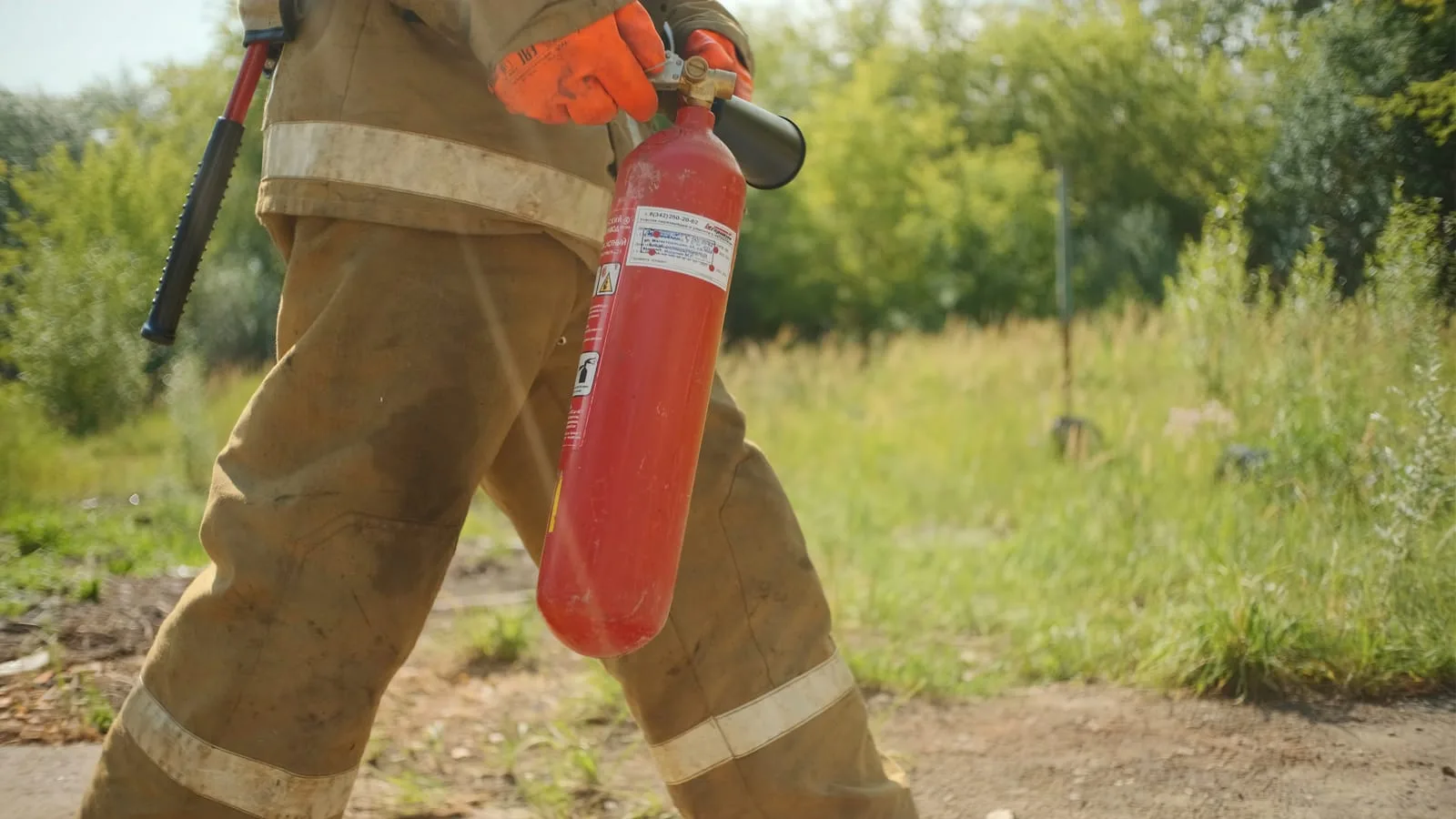Comprehensive Legal Advocacy for AFFF Exposure Lawsuits Nationwide

RTRLAW stands as a beacon of support for those affected by Aqueous Film Forming Foam (AFFF) exposure. We’re dedicated to representing clients across the country through AFFF lawsuits, fighting for the justice and compensation they deserve.
What is Aqueous Film-Forming Foam (AFFF)?
AFFF is a foam fire suppressant used to extinguish flammable liquid fires such as a fuel fire. The foam acts as a switch, cutting off the oxygen which is vital to the fire. Eventually the foam chokes the oxygen, which leads to the chemical fire being extinguished. Unfortunately, many of the foam fire suppressants in use contain hazardous chemicals called perfluroalkyl and/or polyfluoroalkyl, otherwise known as PFAS, which is described as a “forever chemical.” PFAS has already raised significant environmental and health concerns.
AFFF was utilized in routine training at airports, military bases and with firefighters to master the usage of the foam to suffocate chemical fires. This hazardous material affects service men and women and also everyday civilians who unknowingly consume water from the area where these forever chemicals may have been used or where the chemicals may have seeped into the local water supply from runoff.
What Are the Health Risks Linked to AFFF Exposure?
Understanding the extensive health risks associated with AFFF exposure is a vital aspect of medical awareness and essential when taking legal action. The following outlines the major health concerns linked to AFFF:
- Cancer Risks:
- Kidney Cancer: AFFF exposure has been linked to an increased risk of developing kidney cancer. The toxic substances in AFFF can accumulate in the kidneys, leading to cellular damage and cancerous growths.
- Testicular Cancer: Chemicals in AFFF may disrupt hormonal functions, potentially leading to the development of testicular cancer. This risk is particularly concerning given the role of hormones in reproductive health.
- Non-Hodgkins Lymphoma
- Bladder Cancer
- Leukemia
- Liver Cancer
- Prostate Cancer
- Testicular Cancer
- Uterine or Endometrial Cancer
- Immune System Disorders: AFFF contains compounds that can weaken the immune system, leaving the body more susceptible to infections and diseases. This can result in a decreased ability to fight off common illnesses and may impact the efficacy of vaccines.
- Hormonal Disruptions: Exposure to the chemicals in AFFF can lead to hormonal imbalances, affecting various bodily functions. These disruptions can manifest in reproductive issues, developmental problems in children, and other hormonal-related conditions.
- Other Health Problems:
- High Cholesterol: Research suggests a correlation between AFFF exposure and elevated cholesterol levels, which can increase the risk of heart disease.
- Ulcerative Colitis: AFFF exposure may be linked to this inflammatory bowel disease, characterized by long-lasting inflammation and ulcers in the digestive tract.
- Thyroid Disorders: The thyroid gland can be particularly susceptible to PFAS chemicals (the kind that are in AFFF), leading to disorders that can affect metabolism, body temperature, and heart rate.
RTRLAW evaluates these health concerns to assist you in your legal pursuit for justice. We recognize and help identify signs, whether you’re a firefighter, a member of the military, or a resident in contaminated areas. Understanding these signs is the first step in your legal journey.
What Is Needed to Determine Eligibility for Filing an AFFF Lawsuit?
The attorneys at RTRLAW will help determine your eligibility for filing an AFFF lawsuit. This requires careful assessment of various factors. The eligibility criteria include:
- Firefighters and Military Personnel:
- Frequency of AFFF Use: Firefighters and members of the military often have a history of regular AFFF exposure due to routine drills and exercises utilizing the material to put out liquid fires and for emergency situations. The extent and frequency of exposure to AFFF are critical factors in establishing if the individual has a valid legal claim.
- Documenting Exposure: It’s important to document when and how often AFFF was used, as well as any safety measures that were in place or lacking during its use.
- Residents Living Near Contaminated Sites:
- Proximity to AFFF Usage Areas: People living near airports, military bases, or industrial sites where AFFF was frequently used are at greater risk of exposure to PFAS through environment contamination versus non-residents who were not exposed to the danger. Eligibility may depend on the proximity and duration of residence near these sites.
- Evidence of Contamination: Documentation of environmental studies or reports indicating PFAS contamination in these areas can strengthen the claim.
- Industrial Workers:
- Workplace Exposure: People who worked in industries where AFFF was part of their regular firefighting or safety protocols are also at risk. This includes, but is not limited to, aviation, oil and gas, and chemical manufacturing industries.
- Safety Records and Protocols: Examining workplace safety records and protocols related to AFFF use can provide evidence of exposure levels and potential negligence.
RTRLAW is dedicated to helping victims understand their rights and the viability of their claims. Our team of expert personal injury attorneys provides comprehensive guidance throughout the eligibility determination process, ensuring that every potential claimant receives a thorough evaluation of their situation.
By meticulously examining each case, RTRLAW fights hard to get those affected by AFFF exposure the justice and compensation they deserve.
What Are the Main Objectives of Filing an AFFF Lawsuit?
Filing an AFFF lawsuit goes beyond individual compensation; it encompasses broader objectives related to justice, public safety, and environmental protection. RTRLAW is committed to championing the following objectives on behalf of their clients:
- Seeking Compensation:
- Medical Expenses: Many people exposed to AFFF face significant healthcare costs due to related illnesses. A lawsuit can recover these expenses.
- Lost Income: If health issues caused by AFFF exposure have led to lost wages or reduced earning capacity, compensation can cover these financial losses.
- Pain and Suffering: Compensation also accounts for the physical pain and emotional distress caused by illnesses related to AFFF exposure.
- Holding Manufacturers Accountable:
- Failure to Warn: Lawsuits aim to hold manufacturers like 3M and DuPont accountable for not adequately warning about the dangers of synthetic PFAS chemicals in AFFF.
- Corporate Responsibility: These legal actions emphasize the responsibility of corporations to produce safe products and inform the public about potential risks.
- Environmental and Health Advocacy:
- Stricter Regulations: By highlighting the dangers of AFFF, these lawsuits push for stricter environmental regulations regarding the use and disposal of hazardous substances like PFAS chemicals.
- Raising Public Awareness: Lawsuits can also serve as a platform to increase public and governmental awareness about the risks associated with AFFF, potentially leading to safer practices and reduced exposure in the future.
By pursuing these objectives, RTRLAW plays a pivotal role in not only securing justice for those adversely affected by AFFF but also in fostering a safer and more accountable industrial and environmental landscape.
What is the Current Landscape of AFFF Lawsuits?
As of December 2023, legal actions have been initiated against companies such as 3M and DuPont, among others, for their role in producing and distributing AFFF including a $10.3 billion dollar settlement with some of these companies. These lawsuits assert that the companies knew about the potential health hazards associated with AFFF exposure but continued to promote it as a safe product. The claims further point out that AFFF contains hazardous substances like PFAS chemicals, which pose a risk of contaminating water and soil, particularly around airports and military installations.
Firefighters, military members, and others affected have brought these lawsuits, citing their exposure to the harmful chemicals in AFFF has led to the development of cancer and various health complications. Additionally, the lawsuits contend that companies, including 3M, were aware of the connection between PFAS chemicals and cancer since the 1990s.
The legal landscape of AFFF lawsuits is evolving. RTRLAW represents clients in individual lawsuits and multidistrict litigations across the country, and our attorneys are committed to navigating these complex proceedings together to get the justice and compensation that clients deserve.
Your Journey in an AFFF Lawsuit Starts Here!
Embarking on a lawsuit can be daunting, but RTRLAW simplifies the process. From a free case review at the outset to dedicated representation throughout your case, our legal team takes a personalized approach to your AFFF lawsuit, and we stand by you every step of the way.
If AFFF exposure, or any other dangerous consumer product exposure, has negatively and adversely impacted you or your loved ones, RTRLAW is ready to assist today. Contact us for comprehensive support and guidance throughout the legal process and start your journey toward justice in your AFFF case today.
For more information and a free, no-obligation case review, call RTRLAW toll free at 1-833-HIRE-RTR (1-833-447-3787).


 CALL US NOW
CALL US NOW TEXT US NOW
TEXT US NOW























